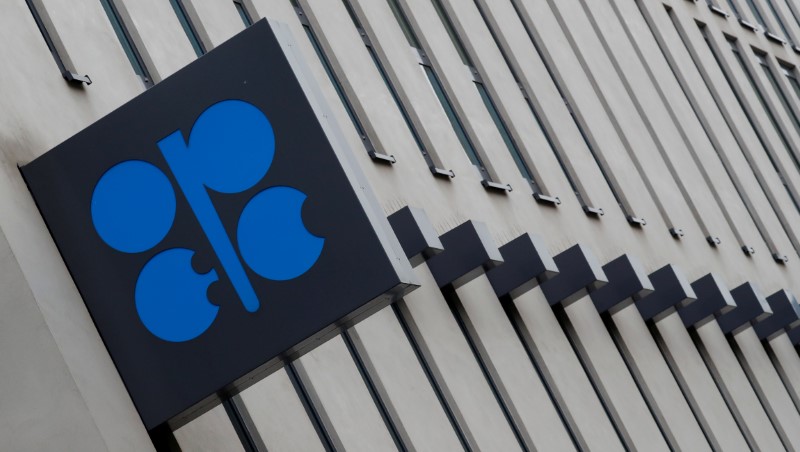By Maria Tsvetkova, Rania El Gamal and Alex Lawler
MOSCOW/DUBAI/LONDON (Reuters) - Oil producers need to resume cooperation in an effort to stabilize the global market, Russian and OPEC officials said, as the industry reels from a demand and price collapse caused by the coronavirus pandemic and an emerging price war.
A three-year supply pact between the Organization of the Petroleum Exporting Countries (OPEC) and other producers, including Russia, fell apart this month, prompting OPEC to remove limits on its output.
The resulting supply boost has coincided with plummeting demand as governments around the world implement national lockdowns to slow the spread of the virus. That twin-pronged assault on prices has sent Brent crude (LCOc1) to a 17-year low below $25 a barrel and hammered the income of oil producers.
One of the reasons for the breakdown of the deal between OPEC and other producers, a group known as OPEC+, was Russia's reluctance to support bigger curbs to output.
But there are signs that resolve could be softening, with a senior Russian official telling Reuters that a new OPEC+ deal might be possible if other countries join in.
"Joint actions by countries are needed to restore the (global) economy ... They (joint actions) are also possible in the OPEC+ deal's framework," said Kirill Dmitriev, the head of Russia's sovereign wealth fund.
He and Energy Minister Alexander Novak were Russia's top negotiators for the previous OPEC pact, which officially expires on March 31.
Dmitriev declined to say what nations could be included in a new deal.
Though the United States is the largest oil producer not included in OPEC+, the idea of Washington cooperating with other oil exporters has long been considered unlikely, not least because of U.S. antitrust laws.
However, the unprecendented situation in which policymakers find themselves appears to be bringing previously unthinkable ideas into play.
Forging a U.S.-Saudi oil alliance is one of "many, many ideas" being floated by U.S. policymakers, U.S. Energy Secretary Dan Brouillette told Bloomberg TV on Monday. It is uncertain if the idea will become a formal proposal, he said.
U.S. President Donald Trump last week said that he would get involved in the oil price war between Saudi Arabia and Russia at the appropriate time.
Adding further pressure, the head of the International Energy Agency, an adviser to the United States and other industrialized countries, on Thursday called on Saudi Arabia to help stabilize the market.

OPEC, meanwhile, wants to look at ways to support the market. Algeria, which holds the OPEC presidency at present, has called for a meeting of the group's Economic Commission Board to be held no later than April 10.